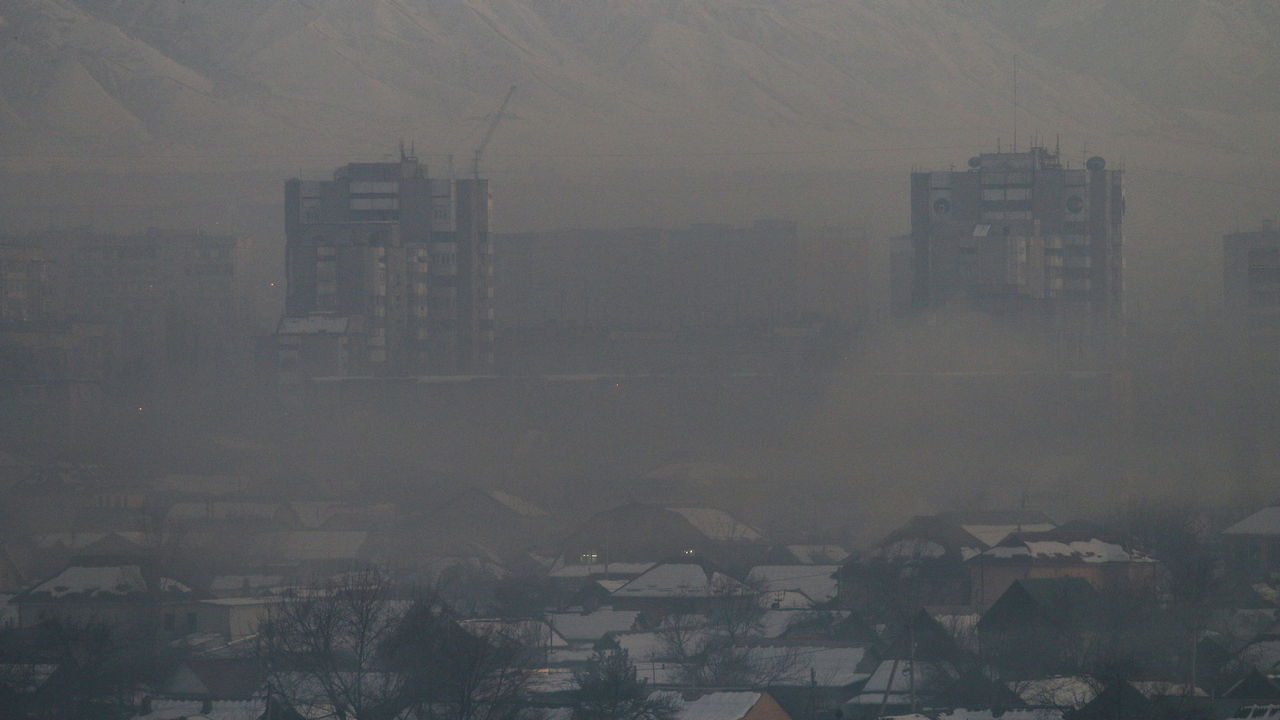
Green Alliance of KG address to government on heavy smog in Bishkek
To the Cabinet of Ministers of the Kyrgyz Republic
To Ministry of Energy and Industry of KR
To Ministry of Natural Resources, Ecology and Technical Supervision of KR
To the Mayor’s Office of Bishkek city
We, the Green Alliance KG, association of legal entities, which unites 50 environmental organizations across Kyrgyzstan, write to you about the problem of smog in the city of Bishkek.
All of us, like most citizens of Bishkek, are concerned about the problem of smog. Smog annually intensifies in Bishkek in the winter months, and neither Bishkek mayor’s office nor the Cabinet of Ministers of the Kyrgyz Republic have proposed significant measures to eliminate the problem.
The reasons for the smog, in our opinion, are: the accumulation in Bishkek of a large number of old vehicles without catalysts, heating with low-quality coal and household waste from residential areas around Bishkek. And although the Central Heating Plant (CHP), according to our information, has filters for cleaning emissions, but the quality of coal purchased for the CHP also needs to be controlled.
The ring of residential areas around Bishkek, of which there are currently more than 50, has more than 250,000 residents. Most of them are heated by coal, and also use household waste for this purpose.
According to a UNDP study, from 2010 to 2019, 12-13% (4,100-5,000) of deaths per year in the Kyrgyz Republic were related to air pollution . Health costs associated with air pollution in the Kyrgyz Republic were estimated at $388 million, or 6% of gross national income in 2015.
Improving air quality can reduce the burden of diseases such as stroke, heart disease, cancer, chronic and acute respiratory diseases, including asthma.
So what measures can be proposed to improve air quality in Bishkek?
We suggest:
1. To conduct research on the quality of coal (for toxic impurities, completeness of combustion and composition of gas emissions) burned by residents of the private sector and CHPs.
2. Apply enrichment of Kara-Kecha low-calorie lignite by briquetting with additives (Mongolia’s experience in combating smog in Ulan-Bator).
3. Carry out a mass check of the presence of catalytic converters in cars in Bishkek. Apply high fines to drivers for operating vehicles without exhaust gas catalysts.
4. Prohibit the entry of vehicles without exhaust gas catalysts into the city.
5. Restore the system of public transport, remove minibuses from the city.
6. Continue landscaping the city and strengthen control over the survival of trees.
7. To check bathhouses and saunas for burning of solid domestic waste and tires, to install video surveillance cameras there, because some bathhouses conduct burning of domestic waste at night.
8. Seek subsidies for the introduction of gas heating in residential areas around Bishkek.
9. Gradually transfer CHP to the use of gas fuel.
10. Stop the chaotic development of the city, in the construction of new buildings in Bishkek, take into account the energy efficiency of buildings under construction, as well as the “wind rose”.
11. To conduct explanatory work with the residents of the private sector and residential areas about the negative impact of burning household waste on air quality and public health.
12. To conduct explanatory work with the population on the thermal insulation of the premises without the use of fuel and energy efficiency of buildings.
13. To recultivate the existing city landfill and move it as far away from the city as possible, to accelerate the construction of a waste recycling plant.
In its turn, the members of the “Green Alliance KG” are ready to contribute to solving this problem and help state agencies to achieve clean air in the capital.